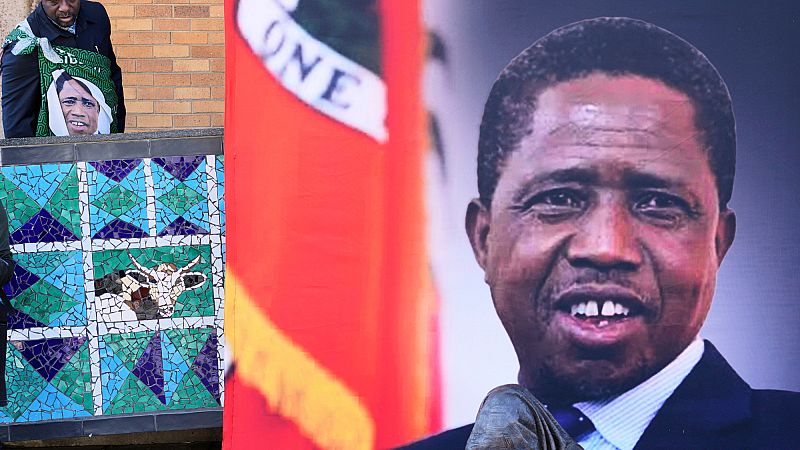A South African court grants Zambia rights to repatriate Edgar Lungu for State funeralal

A South African court has ruled in favor of the Zambian government, allowing it to repatriate the remains of former President Edgar Lungu for a state burial in Zambia, despite objections from his family. The decision ends a contentious legal battle over where the late leader should be laid to rest, highlighting deep political divisions and the tension between personal wishes and national protocol.
On Friday, Judge President Aubrey Ledwaba of the South African High Court ruled that Zambia had the legal right to conduct a state funeral for Lungu, who served as president from 2015 to 2021.
The court emphasized that the burial of a former head of state was a matter of public interest, overriding any personal wishes expressed by the deceased or his family.
Lungu, who passed away in June at the age of 68 in a South African hospital, had reportedly expressed a desire to be buried in South Africa.
His family also requested that current Zambian President Hakainde Hichilema neither attend nor participate in the funeral arrangements, citing longstanding political tensions.
However, the Zambian government argued that as a former president, Lungu was entitled to an official burial in his homeland.
A bitter political rivalry extends beyond death
The dispute over Lungu’s burial reflects the deep-seated animosity between him and his successor, Hichilema.
The two were fierce political opponents, with Hichilema even being imprisoned in 2017 during Lungu’s presidency on charges his supporters claimed were politically motivated.
Last year, Lungu accused Hichilema’s government of harassing him through law enforcement and restricting his movements.
His family also alleged that the government initially blocked his travel to South Africa for medical treatment—a claim the administration denied.
The legal battle over his burial has only intensified these political divisions, with Lungu’s supporters viewing the government’s insistence on a state funeral as an attempt to control his legacy.
Legal precedent: State funerals as a matter of national interest
In its ruling, the court referenced previous Zambian legal decisions that affirmed state funerals as a matter of national protocol for individuals of significant public importance.
Judge Ledwaba stated, “Even if a president has expressed a wish not to receive a state funeral, such a desire must be set aside in favor of public interest.”
The judgment effectively bars Lungu’s family from burying him in South Africa on the designated funeral date, ensuring that Zambia will oversee the proceedings.
While the family retains the right to appeal, Zambian Attorney General Mulilo Kabesha expressed hope that the ruling would bring closure to the dispute.
“This isn’t about winning. You can’t win when it comes to a burial. It simply makes sense that the former president of the Republic of Zambia should be laid to rest in his homeland, the nation where he served as president,” Kabesha told reporters.
Broader implications: national unity vs. personal wishes
The case raises broader questions about the balance between an individual’s final wishes and the state’s role in honoring its leaders.
While some argue that Lungu’s family should have the final say, others believe that former heads of state deserve formal recognition by the nation they once led.
The ruling also underscores the lingering political tensions in Zambia, where transitions of power have often been fraught with controversy.
As the country prepares for Lungu’s state funeral, the question remains whether the ceremony will serve as a moment of national reconciliation or further deepen existing divisions.
What comes next?
With the court’s decision, Zambia’s government will now proceed with repatriating Lungu’s remains and organizing an official burial.
The family could still challenge the ruling, but legal experts suggest an appeal may face significant hurdles given the court’s emphasis on national interest.
As Zambia mourns its former leader, the world watches to see whether this legal victory will help heal political wounds—or if the divisions that defined Lungu’s later years will persist even in death.
Today

